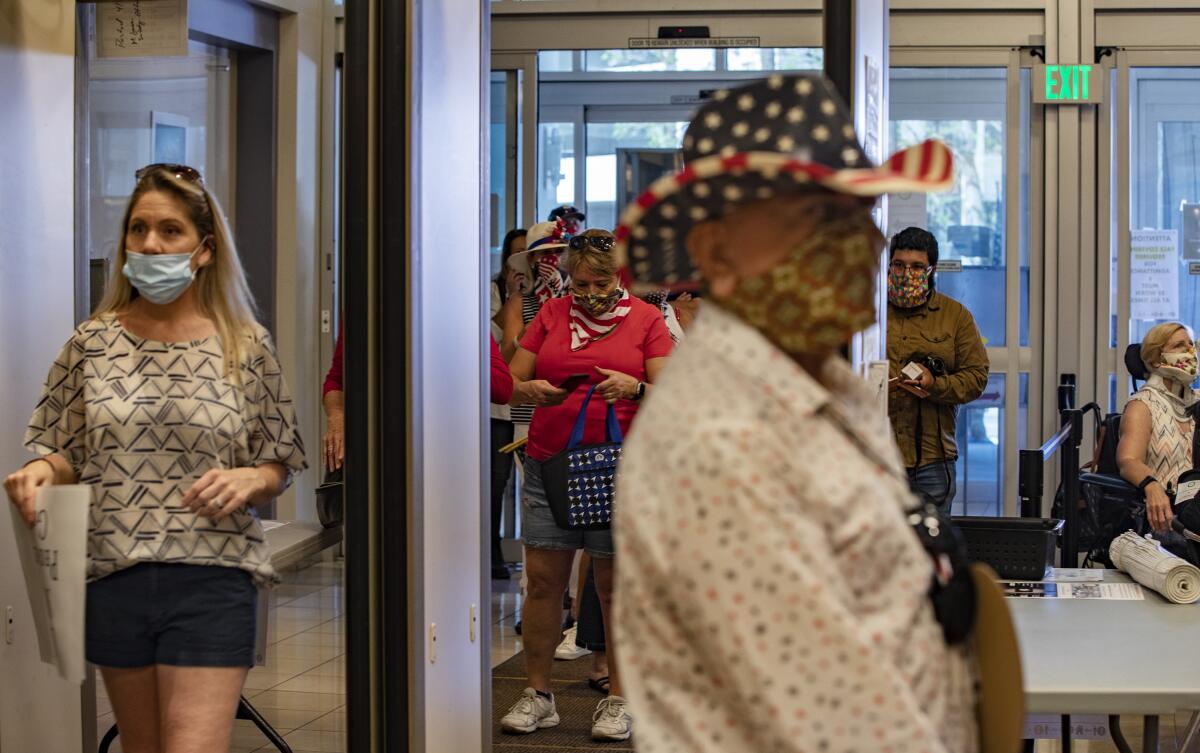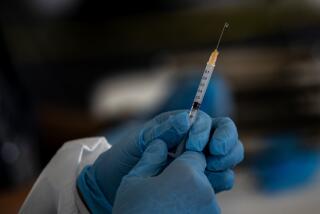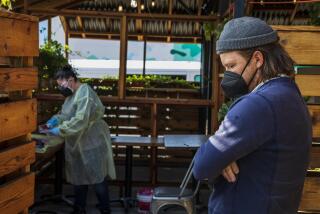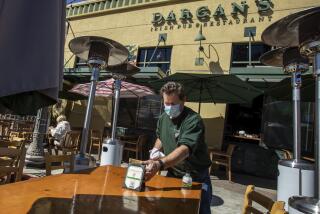Riverside County adopts alternative plan to reopen the local economy

The Riverside County Board of Supervisors voted unanimously this week to approve a “Readiness and Reopening Framework” that outlines alternative benchmarks toward reopening the local economy amid the coronavirus pandemic.
The document addresses the criteria that Gov. Gavin Newsom laid out last week in his reopening plan but proposes alternatives to the metrics, which local officials call unrealistic for an urban county as large as Riverside County. The county has about 2.5 million residents.
Rather than waiting until the county has less than one new COVID-19 case per 10,000 residents and zero deaths for 14 days, the locally approved framework offers a less rigid plan.
Fourth District Supervisor V. Manuel Perez said the new plan asw an effort to establish balance between the county and the state, rather than reopening against Newsom’s wishes like Yuba County. He said he hoped Newsom would negotiate with Riverside County.
“I see this as a working document. By the minute, by the day, by the hour, things are changing, and obviously we’ll need to adjust,” Perez said during the board meeting Tuesday. This document shows “that we still continue to put our foot to the pedal and [are] doing everything we can” to suppress the novel coronavirus, which will be an ongoing process, he said.
Now that the alternative plan has been approved, county officials will send it to Newsom and state officials to ask that they approve “regional variances” in the state’s reopening plan. Riverside County also signed a joint letter with neighboring San Diego, Orange and San Bernardino counties. Perez said that although they each may have different plans — depending on their individual progress — they want to create a coalition.
“We’re coming together as urban counties to ask the governor to work with us,” Perez said.
The effort coincides with what 3rd District Supervisor Chuck Washington said last week: “We will have more power in numbers.”
With 5,343 confirmed coronavirus cases as of Wednesday afternoon, Riverside County has the second-highest number of cases in the state. A total of 228 people have died from COVID-19. More than 3,000 people have recovered since the pandemic began, according to county records.
Perez said that the higher number of cases was partially due to the fact that Riverside County had tested more than 76,000 people so far, which is about 3% of the population.
“Out of all the counties in the state of California, the population that we have per capita, [we] have tested more people than anyone else,” he said. The numbers alone may make it appear that Riverside County has more positive test results, but “there’s also [been] a downward trend over these last couple of weeks.”
The county has the capacity to test about 3,200 people daily, and Public Health Director Kim Saruwatari said it was “very close” to reaching the state’s benchmark of 3,750 tests per day, or 1.5 tests per 1,000 residents.
Saruwatari and Juan Perez, the county’s director of transportation and land management, presented the guidelines included in the county’s alternative reopening plan.
Perez said the county would ask businesses to provide health protocols for their employees and customers, and to post signage to clearly show their business-specific plans, such as the face-covering recommendation the county approved last week.
During the meeting, Saruwatari explained how Riverside County’s efforts measured up to Newsom’s criteria. Officials said the county was ready to move on to what they were calling “accelerated Stage 2,” or Phase 2.5, which would include the reopening of dine-in restaurants and child-care facilities.
The alternative plan also asks the state to consider the limited reopening of three business categories that Newsom has placed in Stage 3: religious services, hospitality/wineries and personal grooming, Perez said.
Saruwatari said Riverside County met the criteria that Newsom outlined regarding hospital and ICU bed capacity, making the county more than prepared to care for patients if a surge were to occur. The county has also ramped up the amount of personal protective equipment it has, she said.
The alternative plan also states that the county will increase its contact tracing capability. Saruwatari said the county was close to nailing down ways to implement antibody testing by this month as well.
“This document recognizes that we can’t have a one-size-fits-all approach,” Perez said. “We have to recognize that the state has different criteria for different industries based on business practices.”
Officials also announced Wednesday that four youth probationers who were transferred from an out-of-state facility had tested positive for coronavirus infection.
According to the Riverside County Probation Department, eight juvenile offenders were transferred from a Michigan facility to the Alan M. Crogan Youth Treatment and Education Center in Riverside. Of the eight, half of them tested positive. They are all scheduled to appear in court this week, officials said.
The probationers who tested positive have been placed in quarantine and will not have contact with other juveniles housed at the Riverside facility, officials said.
Nurses screen youth daily at each of the county’s three juvenile facilities, officials said. The department’s coronavirus prevention plan has been in place at the facilities since March 13, officials said.
As of Wednesday afternoon, 213 residents ages 5 to 17 had tested positive for the novel virus, records show.
More to Read
Sign up for Essential California
The most important California stories and recommendations in your inbox every morning.
You may occasionally receive promotional content from the Los Angeles Times.











